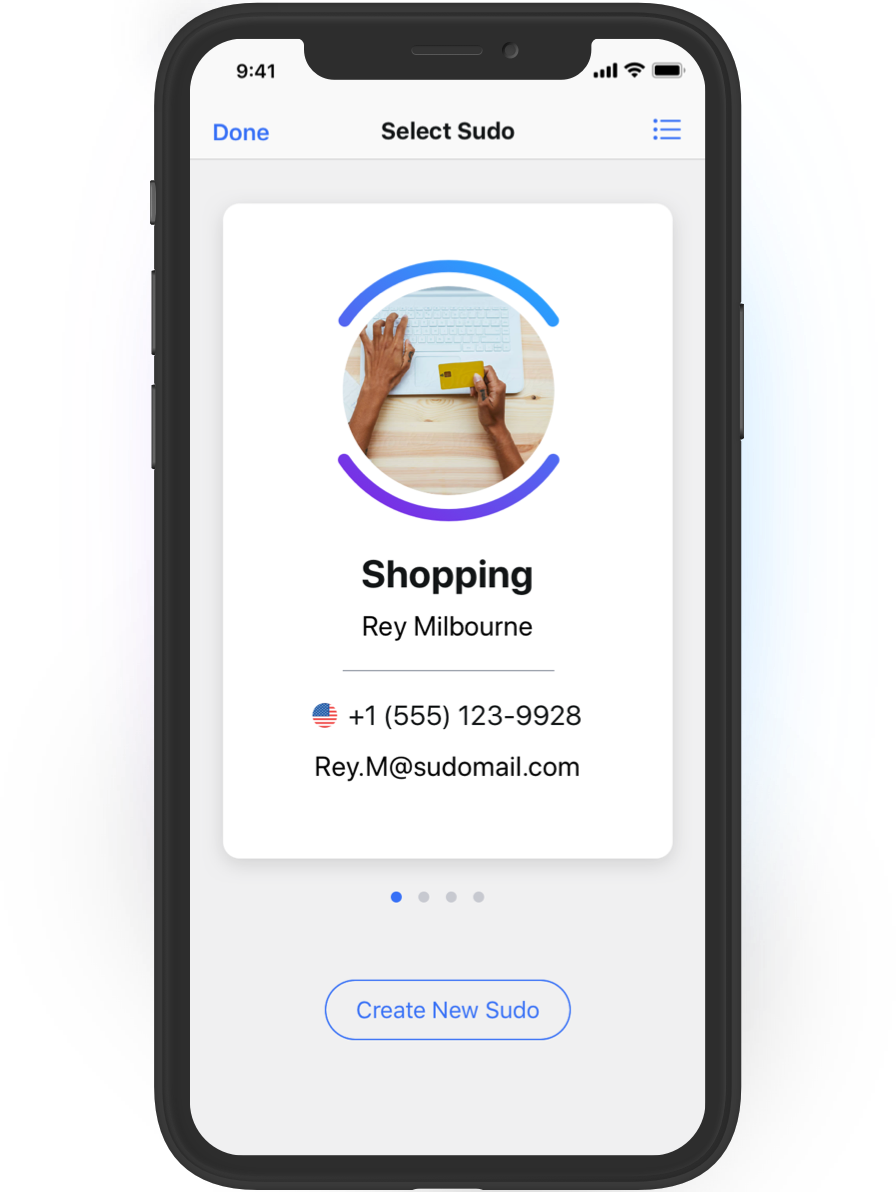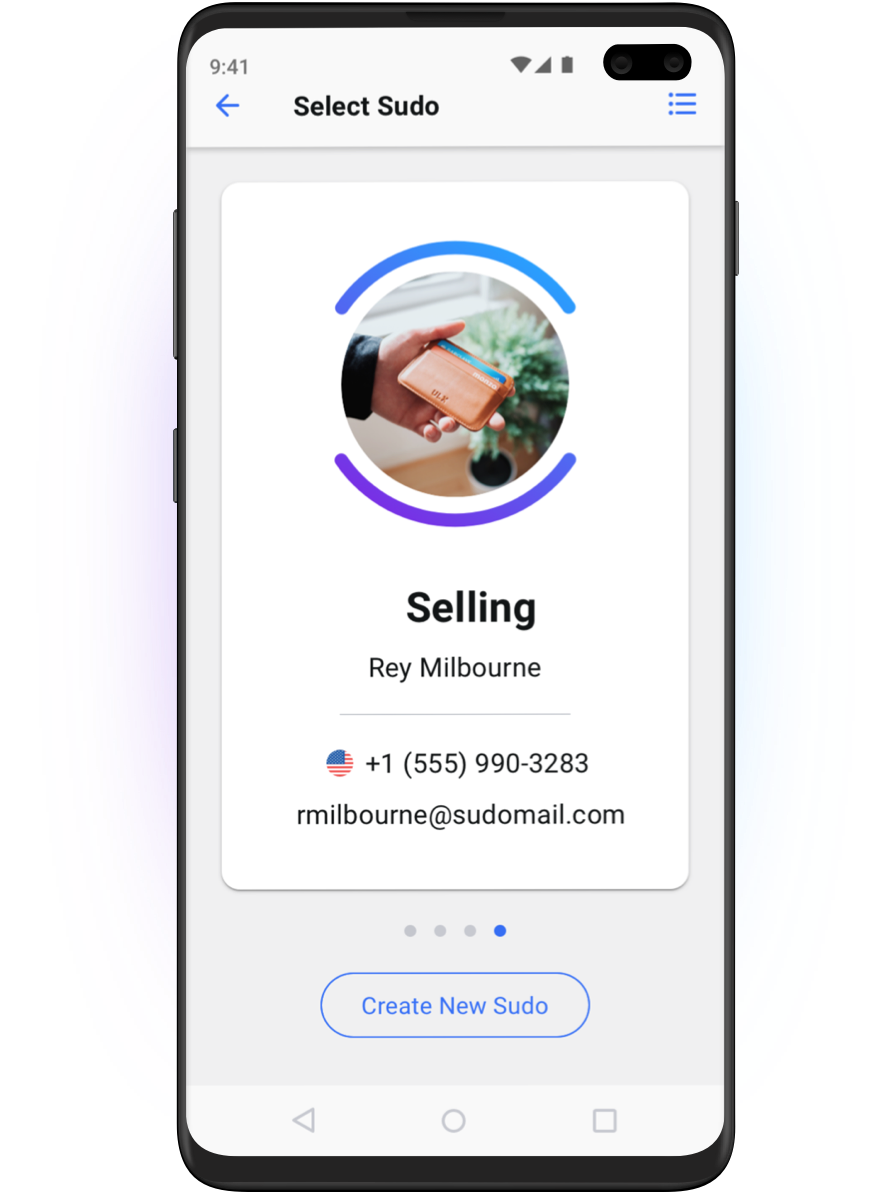Have you ever wondered how to set up the nine separate Sudo profiles you have in MySudo, to best protect your personal information and limit your digital exhaust and the impact of surveillance capitalism on your life?
Here, we walk you through five strategies for maximizing the benefits of MySudo, particularly its power of compartmentalization. Compartmentalization, or separating and siloing your personal information to limit the impact in the event of data breach or data misuse, is the most powerful privacy protection strategy there is. We built MySudo on this exact same principle.
But before we begin, some background if you need it:
- Our new video explains MySudo in 90 seconds.
- This article tells you everything you need to know about Sudo profiles.
- This is a deep dive into compartmentalization.
- Personally identifiable information is what we’re trying to protect online. Here are 14 real-life examples.
Five ways to think about using Sudo profiles
Even with one Sudo profile, you have achieved some compartmentalization between your own personal phone number and email address, and your Sudo profile phone number and email address. But with up to nine Sudo profiles at your disposal, you can go much further in protecting your privacy. Here are five ways to think about using Sudo profiles:
- How long will you be involved with the web site or service? Is the interaction valuable and important, or fleeting and transient? If the relationship you have with a site or service is long and enduring (e.g. with your bank or insurance company), then you would set up a separate Sudo profile for just that purpose. If the interaction you plan to have is short-lived and of little value to you (e.g. a pizza restaurant offering a deal one Friday night, or a travel site you’re using for a one-off trip), then you could use a dedicated Sudo profile for just that function. The idea here is that you and your bank or insurance company will communicate a lot over time, and you can organize and separate those communications from other less important communications. But even more importantly, if the pizza restaurant or travel site sells, loses or otherwise misuses the Sudo email address or phone number you gave them, you can simply mute the notifications on, or delete, that Sudo profile* and move on. No real harm done.
The same thinking applies to your hobbies and community activities. If you coach your child’s soccer team or work for a charity, you might want to set up a dedicated Sudo profile for each of those substantial and longer-term activities. You’ll be sending and receiving a lot of calls, texts and emails within those contexts, and you can keep your personal information separate and secure for each. You’re not using the same low-value email address and phone number you gave to the pizza restaurant; similarly, you’re not using your high-value email and phone number you use for your bank and insurance company either. You’re using dedicated contact details that you know only apply in the context of the soccer team or the charity. This idea is really the same as wearing many different hats in life. - What types of activities do you typically undertake? How would life be easier if you had compartments in which to corral your communications? For example, you might choose to set up a Shopping Sudo profile for all your online shopping, a Selling Sudo profile for buying and selling secondhand goods on online marketplaces, and a Social Sudo profile for organizing activities with friends or your book or model airplane club, for example. This is also a good choice for using MySudo because you’re disaggregating your shopping information and your socializing information, and thus reducing the value of your digital exhaust to surveillance capitalists. But you may not want to use the same Sudo information for retailers you deal with frequently, such as Amazon or eBay, as you do for merchants with unknown data protection pedigree, where you may make very infrequent purchases, such as a real estate agency or used car yard. If you do choose to split your Sudo use by functional areas, focus on the areas with highest levels of activity first. What do you do most often?
- Would a ‘rings of protection’ hierarchy for your Sudo profiles, a bit like the concept used in computer operating systems, be helpful? ‘Rings of protection’ is a good metaphor for another way you might implement compartmentalization with MySudo. In this concept, you would imagine a privacy hierarchy formed of concentric circles or rings where each circle or ring represents a different level of sensitivity of your personal information. The circular hierarchy starts on the ‘outside’ with least sensitive Sudo profiles (e.g. pizza restaurant Sudo), moves towards the ‘inside’ with quite sensitive Sudo profiles (e.g. online shopping Sudo) and ends in the inner ring with your most sensitive Sudo profiles (e.g. banking or insurance Sudos). You would consider using the Sudo profiles on the outside of this hierarchy for low-value activities and transactions.
Another aspect to this ‘rings of protection’ concept is if you consider a contact earns the right to be ‘promoted’ within your privacy hierarchy after some time. You might start out by giving a contact a low-value Sudo email address and phone number to contact you on but then promote that person to a higher value email address and phone number as your relationship grows over time. This concept might work well for online dating sites, where you might use a low-value Sudo profile when starting out meeting strangers you don’t know or trust but elevate a particular person with whom you’re developing a relationship (and now feel safer communicating with) to your personal phone number or email. - Would it help to have a quick ‘throw away’ Sudo profile too? It’s often helpful to keep at least one Sudo profile that you can dispose of ‘at will’, with no significant consequences, because you have only ever used it for transient, low-value activities. For example, a company may require a valid email address from you in exchange for free use of their service, such as airport or coffee shop WiFi. You’d use that transient, inconsequential Sudo for that purpose.
- Is there a site or service where you know your personal data has already been breached, or was at risk of being breached? Could you use a second chance at digital privacy? It’s incredibly likely that the private phone number and email address you have so far used in your digital life to access all your online accounts (not to mention the residential address and credit card details you give when you shop online, or your everyday browsing history and social media content) are now ‘out there’, compromised, and no longer private at all. From this perspective, a Sudo profile presents a second chance for your digital privacy, and a fresh start at digital life. Could you go to a compromised account and update your phone number and email address with Sudo ones?
Need more ideas for how to make the best use of your Sudo profiles and powerfully protect your privacy? Listen to this episode of consumer privacy expert Michael Bazzell’s podcast for his perspective on how to use multiple Sudo profiles.
* Deleting a phone number or its Sudo does not refund your entitlement for that phone number. For example, SudoMax plan provides nine phone numbers total lifetime in the account, as opposed to always allowing up to nine phone numbers concurrently. Once used, the only way to get another phone number is to purchase a line reset.







